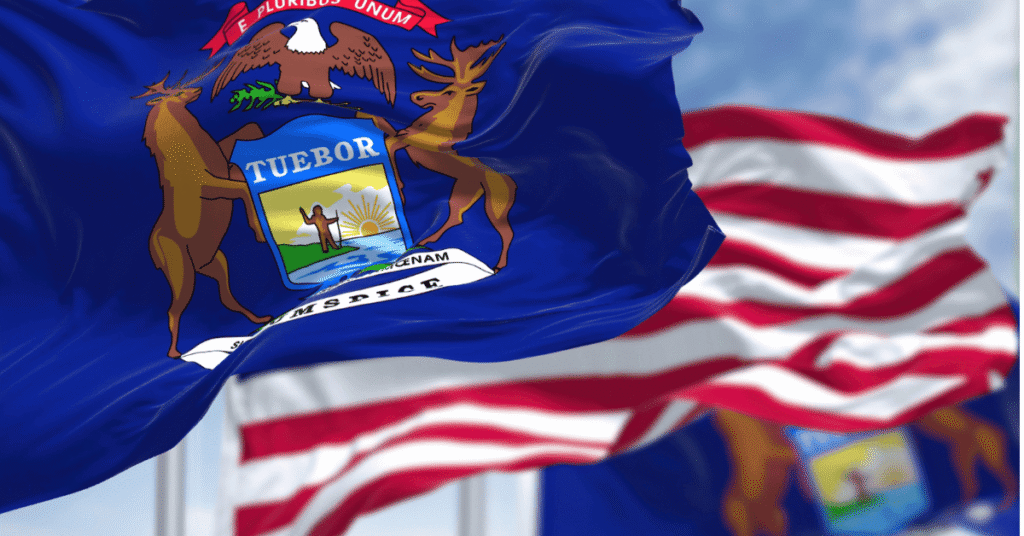This week marks the beginning of what is bound to be a wild year for state tax and budget debates. Essentially every state is already working to sort through the complicated ramifications of the federal tax cuts passed in December, including Kansas, Michigan, Montana, and New Jersey highlighted below. These and other states will have important decisions to make about how to incorporate, reject, or mitigate various aspects of the new federal law, and will need considerable resolve to improve state tax policy to be more fair and more adequate – even as federal taxes become less so. Meanwhile, New Yorkers took to the streets to demand continuation of the state’s millionaire’s tax, Missouri voters may consider a gas tax update this year, and California comes into the new year with a budget surplus and continued debate over newly legal recreational marijuana.
— Meg Wiehe, ITEP Deputy Director, @megwiehe
- Governors and legislators in several states who feel targeted by the federal tax cut bill’s cap on the deduction for state and local taxes (SALT deduction), most notably in relatively high-tax and high-income states like California and New York, are considering some unusual gimmicks to allow their residents to continue deducting the full value of their state income and property taxes. The leading ideas, which themselves pose major problems for state tax codes, are to replace state income taxes with payroll taxes or re-label state and local tax payments as charitable contributions, both of which remain fully deductible under the new federal law.
- As temperatures drop, the debate over taxing New York millionaires heats up. Activists took the streets calling for an increased millionaires’ tax, which is currently set to expire at the end of 2019.
- Despite a looming deficit, 2017 came to an end with little tax action from the Wyoming A number of tax proposals were examined by the state’s Joint Interim Revenue Committee, but the majority of them were punted to later this month. The two that made the cut – a $1 per pack increase to the cigarette tax and an increase to the sales tax on alcohol – will be considered by the full Legislature.
- In the wake of federal tax reform, there is a lot of activity in the states trying to tease out the implications for their own tax codes and revenues. As just a few examples: In Michigan, experts are debating whether their personal exemptions have been in effect eliminated while Gov. Snyder postures to prevent US tax changes from hiking state taxes. Montana estimates it will lose $46 million a year due to federal changes. And Kansas received higher-than-expected revenues in December due to shifts in tax payments as filers acted to take advantage of expiring tax breaks. And New Jersey may consider expanding its property tax deduction (though that would only affect people wealthy enough to pay more than $10,000 in property taxes).
- There’s always something happening in The state is entering the New Year with a surplus that may cause contention between the governor who wants to increase rainy day funds and lawmakers hoping to expand needed services. Recreational pot is now legal in the state, but advocates are concerned about the long-term viability of the legal market given high tax rates. And the latest poll on the gas tax repeal initiative shows stark regional differences in attitudes toward the measure between the Bay area and elsewhere in the state.
- The anticipatory pressure is on in Colorado where officials are estimating that a constitutional amendment (Gallagher) restricting residential property taxes will result in a 15 percent statewide cut to property tax rates in 2019.
- A New Mexico state senator wants the legislature to study the impact of enacting a statewide soda tax, much to the governor’s chagrin.
- Leaders from two influential tribes and environmental advocates are coming together to advance a single carbon tax initiative in Washington
- Nebraska‘s legislative session kicked off this week and will again feature a major tax debate. Some continue to push to slash income taxes, some insist the focus should be on property tax cuts, and others point to the $173 million state budget shortfall and funding needs as reasons to raise revenues rather than cut them.
- A Missouri transportation task force has released its final report, recommending an update to the state gas tax that has eroded considerably since it was last increased 22 years ago. The panel proposes increasing the regular gas tax rate by 10 cents per gallon and the diesel rate by 12 cents.
- South Carolina residents wishing to take advantage of a bizarre tax credit created last year will need to start saving all their gas and maintenance receipts this week in order to claim the credit next year.
What We’re Reading…
- This post from NASBO highlights some of the issues states must grapple with in forecasting revenues and making conformity decisions following federal tax reform.
- Some states are considering creative ways to work around the new SALT cap. Curbed has the story.
- Law professor David Herzig writes in the New York Times about why he hopes the Supreme Court will take up a South Dakota case challenging Quill and reach a new ruling about the collection of sales taxes from online retailers.
- Freelance journalist Rae Ellen Bichell raises the question whether greater income transparency could be one of the keys to reducing inequality in this piece.
- Buddhist scholar Ven. Bhikkhu Bodhi gives his take on UN findings of extreme poverty in the US in this article titled “Poverty is both a political and moral choice made by the powerful.”
If you like what you are seeing in the Rundown (or even if you don’t) please send any feedback or tips for future posts to Meg Wiehe at [email protected]. Click here to sign up to receive the Rundown via email.




